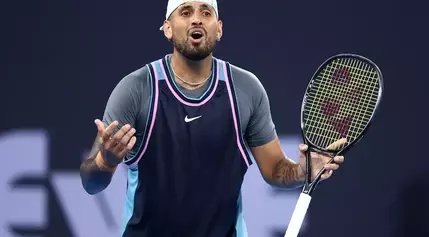The Australian Open 2025 is set to be overshadowed by controversy, particularly surrounding the men's world number one, Jannik Sinner. Accusations of preferential treatment and a doping scandal have cast doubt on the fairness of the sport. The debate revolves around whether top players receive lenient treatment in doping cases compared to lower-ranked athletes. While Sinner was cleared by the International Tennis Integrity Agency (ITIA), the World Anti-Doping Agency (WADA) has appealed this decision. Meanwhile, comments from prominent figures like Nick Kyrgios and Novak Djokovic highlight concerns about double standards in tennis.
In recent months, the tennis community has been abuzz with discussions about fairness and transparency in doping cases. Jannik Sinner, currently holding the top spot in men's tennis, faced allegations after trace amounts of the banned substance Clostebol were found in his system. According to Sinner, the contamination occurred through a physiotherapy session where a spray containing the steroid inadvertently transferred to him. Despite the ITIA clearing him of any wrongdoing, WADA has challenged this ruling, setting the stage for an upcoming hearing at the Court of Arbitration for Sport (CAS).
The controversy extends beyond Sinner. Lower-ranked players have voiced their frustrations over inconsistent penalties. Max Purcell, a two-time grand slam doubles champion, accepted a ban for receiving vitamins above the allowable limit, while Iga Swiatek received a relatively lenient one-month suspension for consuming contaminated melatonin. These discrepancies fuel the perception that top players benefit from better resources and legal representation.
Former ASADA boss Richard Ings pointed out that higher-ranked players can afford to engage legal and scientific teams to fight doping cases, which lower-ranked players cannot. This disparity raises questions about the fairness of the anti-doping process. Tara Moore, a British doubles player, spent thousands trying to clear her name after testing positive due to contaminated meat, highlighting the financial burden faced by less affluent athletes.
Novak Djokovic has also expressed concerns about the optics of the doping policy. He noted that while Sinner's case was quickly resolved, many lower-ranked players face prolonged delays. Djokovic questioned whether financial backing and stronger legal teams play a role in the outcomes of these cases. His calls for a fairer system resonate within the tennis community, emphasizing the need for reform.
The doping saga at AO 2025 underscores the urgent need for tennis authorities to address the perceived double standards. As the sport grapples with these challenges, the integrity of tennis hangs in the balance. Ensuring a level playing field for all athletes remains crucial for maintaining the sport's credibility and public trust.

